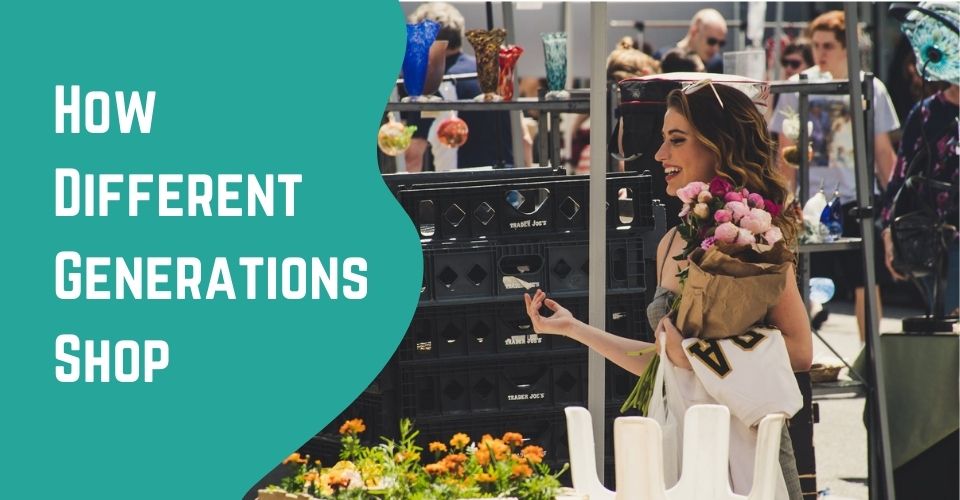Different generations have their own attitude, outlook, and experiences, which help explain a lot about their buying behavior. A recent study by the National Retail Federation surveyed consumers from four generations to see how they search for what they need, what can make them want to buy a product and what they expect from the businesses they purchase from. If you own or manage a business, it’s important to know what kind of shopping experience different people expect from you, and generational tendencies can be useful to your strategy.
First, here’s how each generation is defined:
- Millennials are ages 18 to 35
- Generation Xers are 36 to 51
- Baby boomers are 52 to 70
- The Silent Generation is 71 and older
And here are some highlights from the study:
Overview
Everyone is going on mobile
Consumers from all generations are making more and more purchases on smartphones and tablets through browsers and apps (although younger generations make up the bulk of online shoppers). It’s of great importance for your e-commerce website and customer app are mobile-friendly and load fast.
However, in-store experiences are not less important. In general, 75% of all generations want to see a product in store before purchase. Millennials and Gen Xers still value in-store shopping experience but they are pressed for time, so speed shopping is key here. Both groups said that a fast checkout experience is an important factor in their purchase decision; thus, make sure to offer them fast checkout online and at brick-and-mortar stores.
Loyalty doesn’t always mean the same thing
Loyalty and rewards programs appeals to every generation. However, loyalty doesn’t mean the same thing to them. To baby boomers and the Silent Generation, loyalty means shopping at one location. For Millennials and Gen Xers, it means they are sticking with a specific brand. Thus, if your store sells a variety of brands, and your customer age ranges from Millennials to baby boomers, you can do some researches on which brands are popular among your target customers, or you can look at your sales reports to see which sell most. And when you marketing your business, make sure that you tailor your messages for each group.
Emotional Millennials and Practical Gen Xers
When asked about the things that influence their purchase decisions, millennials listed 12 different factors including friends and family recommendations, in-store experience, and even their moods, while Gen Xers only listed four main factors: review, atmosphere, tech, and speed.
►►►► Please visit our products: digital banking, situation analysis, Shopify markets, Vietnam Photography Tour, Photography Tour Guide Viet Nam, supply chain operations management, fintech ai, Multi Store POS, Woocommerce POS, Mobile POS, White label POS, POS Reseller, Beauty Supply Store POS, Retail POS and Vape shop POS
This result shows a key difference between the two generations: Millennials are emotionally connected to their purchase experience and the brand, which means you need to reach out to them on a personal level. On the other hand, if you’re approaching Gen Xers, send them straight-forward messages about why they should purchase a product from you.
Older generations are value hunters
Baby boomers and the Silent Generation aren’t as pressed for time as Millennials and Gen Xers. Instead, they focus on value for money and product quality. These groups are in favor of reliable, fairly priced, and budget-friendly products. When approaching these groups, send messages that focus on product craftsmanship, reliability, and guarantees and explain to them why the products are worth buying.
Great customer service is a must
In spite of the differences, every generation value customer experience much. The main factors that make customers think highly of your service are: payment security (89%), easy brand interactions (76%), and transparent promotions (71%) are the most important factors when choosing where to shop. So here’s what you need to do:
- Ensure that your system is secured and don’t hesitate to show the trustworthy logos on your payment page
- Create a seamless shopping experience across all the channels so the customers get recognized and can easily purchase, refund, earn and redeem their reward points or gift cards everywhere they go
- Last but not least, promotions should be synchronized and applied on all channels at the same time: online, in store, in customer app so there is no mismatch that can cause customers frustration
